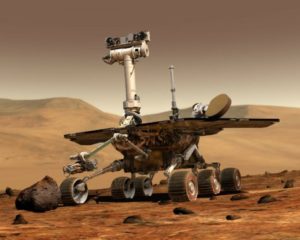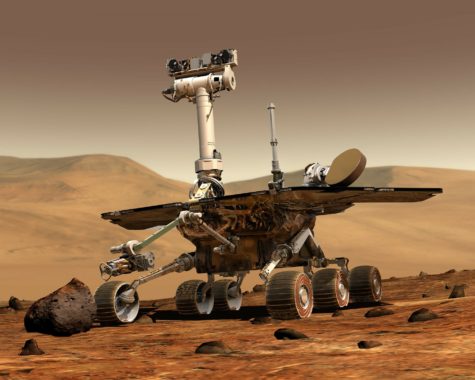WINSTON-SALEM, N.C. — Traveling to Mars may be a real possibility for humans in the next decade or two with several organizations including NASA and Elon Musk’s SpaceX program seeking to be the first to execute the feat. But a new study could give a candidate pause about making the trek.
Researchers from Wake Forest University have found potential health risks that astronauts could face if they ever travel to Mars.
In an experiment funded by NASA, scientists used mice transplanted with human stem cells (HSCs) to demonstrate for the first time that exposure to radiation in deep space could increase the risk of leukemia in humans in two ways, according to a university news release.

“We found that genetic damage to HSCs directly lead to leukemia” says Christopher Porada, an associate professor of regenerative medicine and senior researcher on the project, in the release.
“Secondly, radiation also altered the ability of HSCs to generate T and B cells, types of white blood cells involved in fighting foreign ‘invaders’ like infections or tumor cells. This may reduce the ability of the astronaut’s immune system to eliminate malignant cells that arise as a result of radiation-induced mutations,” he continues.
According to NASA, a round-trip mission to the red planet could take three years, and radiation exposure during travel is one of the biggest concerns for scientists.
The study, which was published in the journal Leukemia, simulated the radiation found in space and concluded that it had a negative impact on human stem cells, which produce the blood cells that circulate through the body. The stem cells were were taken from healthy donors who were between 30 and 55 years of age, the average age for astronauts.
Porada went on to say that radiation exposure caused the stem cells to lose the ability to produce almost all types of blood cells by 60 to 80 percent — which could result in compromised immune systems and anemia for humans — but that he and his colleagues have identified and are currently testing a dietary supplement that could help prevent this.
“It is rewarding to use our expertise in stem cells to help NASA evaluate the potential health risks of space travel and hopefully develop strategies to address them,” says Porada.
According to the release, “NASA’s Human Research Program is exploring not only the effects of radiation, but also conditions of microgravity, isolation and confinement, hostile and closed environments, and distance from earth. The ultimate goal of the research is to make space missions as safe as possible.”
